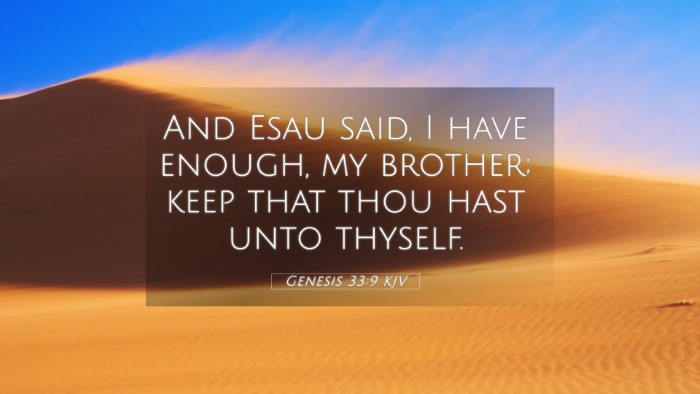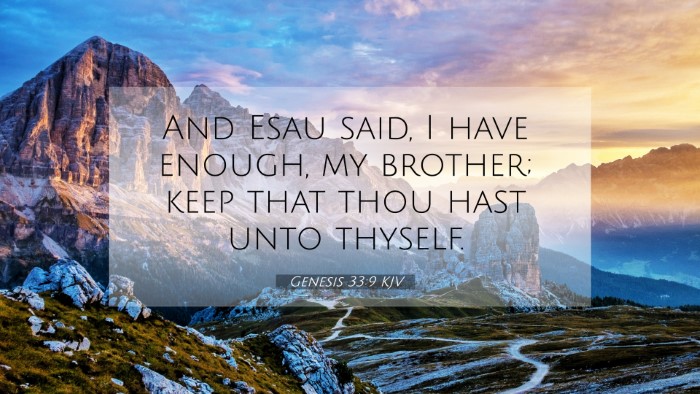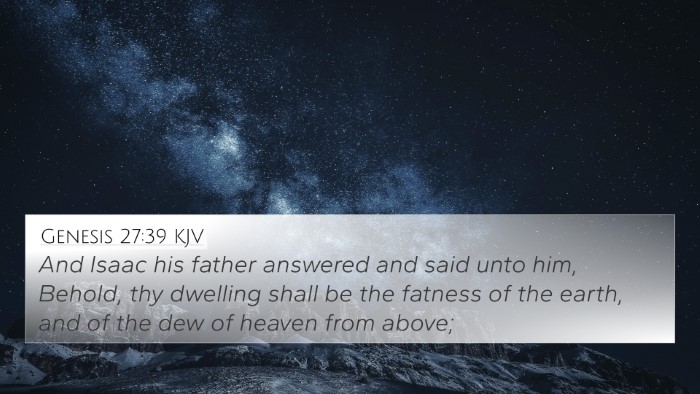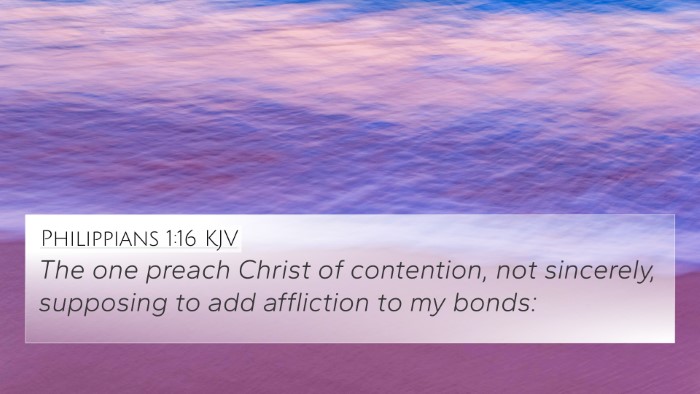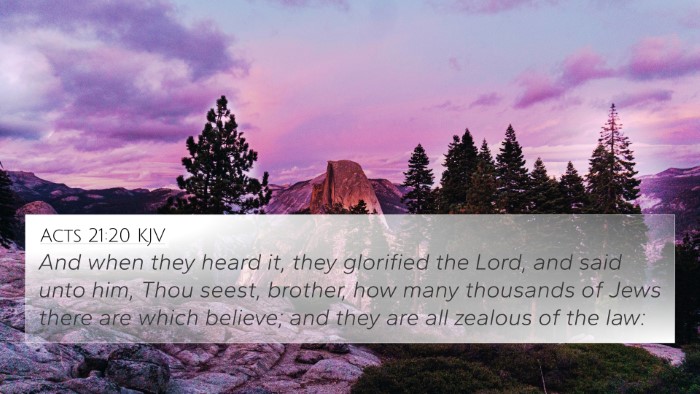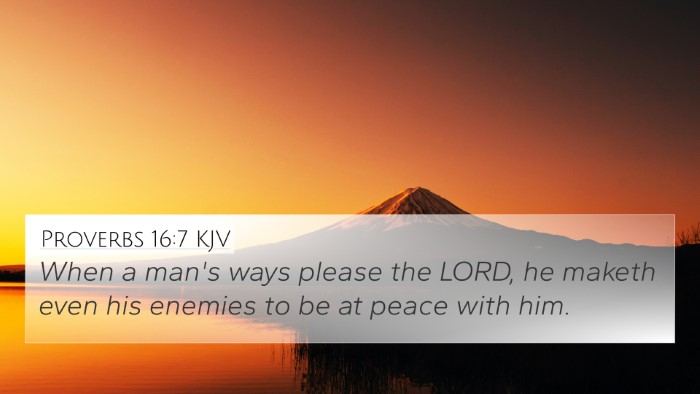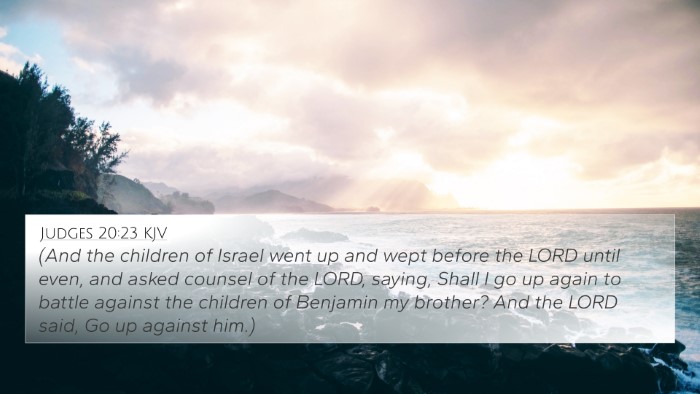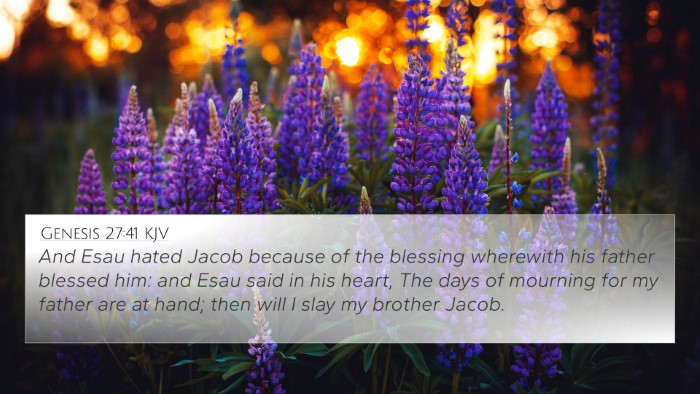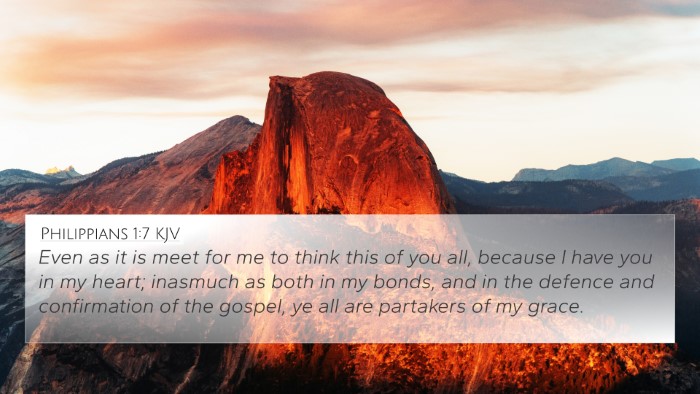Understanding Genesis 33:9
Genesis 33:9 states: "But Esau said, 'I have enough, my brother; keep what you have for yourself.' This verse comes from a pivotal moment in the narrative of Jacob and Esau, illustrating themes of reconciliation, humility, and divine providence. Below, we will draw upon insights from influential public domain commentaries, including those by Matthew Henry, Albert Barnes, and Adam Clarke, to provide a comprehensive understanding of this verse.
Context and Significance
This verse occurs after Jacob's long journey back to Canaan and his surprising encounter with his brother, Esau, whom he had not seen for many years. The complexity of their relationship, marked by Jacob's past deceit, culminates in this moment of grace and acceptance. Jacob, having prepared for a potentially hostile reunion, is relieved to find Esau welcoming him instead.
Commentary Insights
Matthew Henry's Commentary
Matthew Henry emphasizes that Esau's response reflects a heart free from the bitterness of past grievances. He notes that Esau’s willingness to declare he has enough demonstrates a state of contentment and grace. Henry sees this as a reflection of divine blessings, suggesting that true wealth is found in relationships rather than material possessions.
Albert Barnes' Commentary
Albert Barnes interprets Esau's words as a significant liberation from past hurt. He posits that Esau's statement "I have enough" signifies closure for the long-estranged brothers. Barnes explains that this moment reveals a transformational change in Esau’s character and attitudes, highlighting the importance of forgiving and moving forward from past disputes.
Adam Clarke's Commentary
Adam Clarke adds that Esau's rejection of Jacob's gifts is both a gesture of reconciliation and a testament to his growth. Clarke points out that Esau's prosperity allows him to decline Jacob's offerings, marking a significant turn in their relationship. He underscores the importance of humility from both brothers in achieving peace.
Thematic Connections and Cross-References
This verse is rich in thematic connections throughout the Bible. Here are several key cross-references:
- Genesis 32:21 - Jacob sends gifts ahead to appease Esau, highlighting the human effort for reconciliation.
- Genesis 33:1-2 - The preparatory actions Jacob took to meet Esau symbolize fear and anticipation.
- Romans 12:17-21 - A New Testament perspective on overcoming evil with good aligns with Jacob and Esau's reconciliation.
- Colossians 3:13 - This verse encourages forgiveness, mirroring the sentiment of reconciliation found in Genesis 33:9.
- Proverbs 15:1 - "A soft answer turns away wrath," resonates with the gentle interaction between Jacob and Esau.
- Ephesians 4:32 - Calling for kindness and forgiveness, reinforcing the spirit of this encounter.
- James 3:18 - The fruit of righteousness is sown in peace, emphasizing the outcome of their reunion.
Why Cross-Referencing is Important
Cross-referencing Bible verses is a valuable tool in biblical studies. It highlights the interconnectedness of scripture and provides deeper insights into theological themes. By understanding how verses relate, readers can glean more profound meanings and applications in their spiritual journey.
Tools for Bible Cross-Referencing
Utilizing tools such as a Bible concordance or a cross-reference Bible study guide can enhance one’s understanding. Here are some practical methods:
- Identifying Connections: Explore old and new testament relationships to find themes of forgiveness and reconciliation.
- Comparative Bible Analysis: Study the similarities and differences between accounts in the Gospels and the Old Testament.
- Bible Reference Resources: Use comprehensive materials that offer insights into biblical themes and narrative structure.
Conclusion
Genesis 33:9 encapsulates a significant moment of reconciliation fueled by humility and contentment. This understanding, supported by various public domain commentaries and cross-references, enables readers to appreciate the complex but fundamental themes of forgiveness, divine grace, and the importance of relationships. By studying these connections, one can engage more deeply with the biblical narrative and its relevance to personal life.

